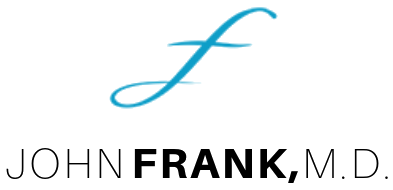As we age, we become more prone to being afflicted with some level of hair loss. By the age of 21, approximately one in four men who have inherited male pattern baldness will begin to experience it. By 35, two out of three men will have experienced some level of hair thinning or loss. And by 50, that number rises to more than eight out of every 10 men.
Why we are more inclined to experience these unfortunate changes as we age is tied to how our body changes with age. One of those changes that affects our hair and so much more are our hormone levels… including testosterone. So how does testosterone play a role in our hair loss?
What Hormones Cause Hair Loss?
Taking a step back from testosterone specifically, it’s wise to start with hormones and hair loss more broadly. Our reproductive hormones that we produce – which include testosterone, estrogen, and progesterone – are important to have in proper balance for our overall health in addition to our fertility.
When our bodies produce less, which occurs naturally as we age, it causes some unwanted effects. In women, this is what triggers menopause. In men, it can lead to erectile dysfunction, loss of muscle mass, and more. Additionally, lower reproductive hormone levels can also trigger hair loss.
In women, lower reproductive hormone levels can cause female pattern baldness, which is an overall thinning of the hair on the scalp. In men, this can trigger male pattern baldness, causing the hairline to recede starting at the temples and working back to form an M-shaped pattern as well as a bald spot starting at the crown of the head and expanding outward. This is because the lower reproductive hormone levels trigger the production of androgens, male hormones that shrink the hair follicles on our scalp which result in hair loss.
How Does Testosterone Affect Hair?
Delving deeper into testosterone specifically, there is more than one type of this particular hormone. Dihydrotestosterone (or DHT) is five times as potent as standard testosterone and can be found in our skin, prostate, and hair follicles.
While there is some link to DHT levels and hair loss in men, these hormones are important for us to have in a certain quantity in order be healthy. This is where our genetics come into play. Those of us who are predisposed and have more sensitive hair follicles are more likely to experience hair loss earlier resulting from the hormones in our body as well as from other factors including stress and diet.
Dr. John Frank Can Implement A Multi-Pronged Approach To Restore Your Hair
In some instances, correcting a hormonal imbalance can stop specific kinds of hair loss and help regrow hair. Over time, other kinds of hair loss – including genetic hair loss – can occur. And while there is still no outright cure for baldness, you do have options. We offer a wide range of options for hair restoration… including FUE and FUT transplants and a number of nonsurgical approaches as well. We will work with you on how to best achieve the results you desire. Contact us today to set up your consultation.


